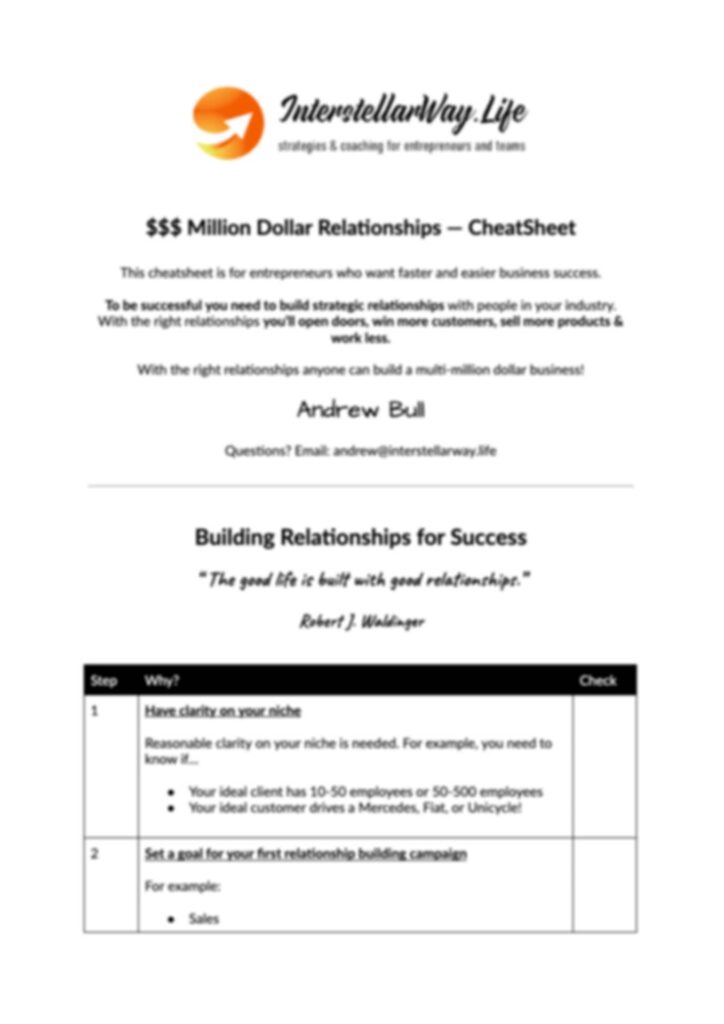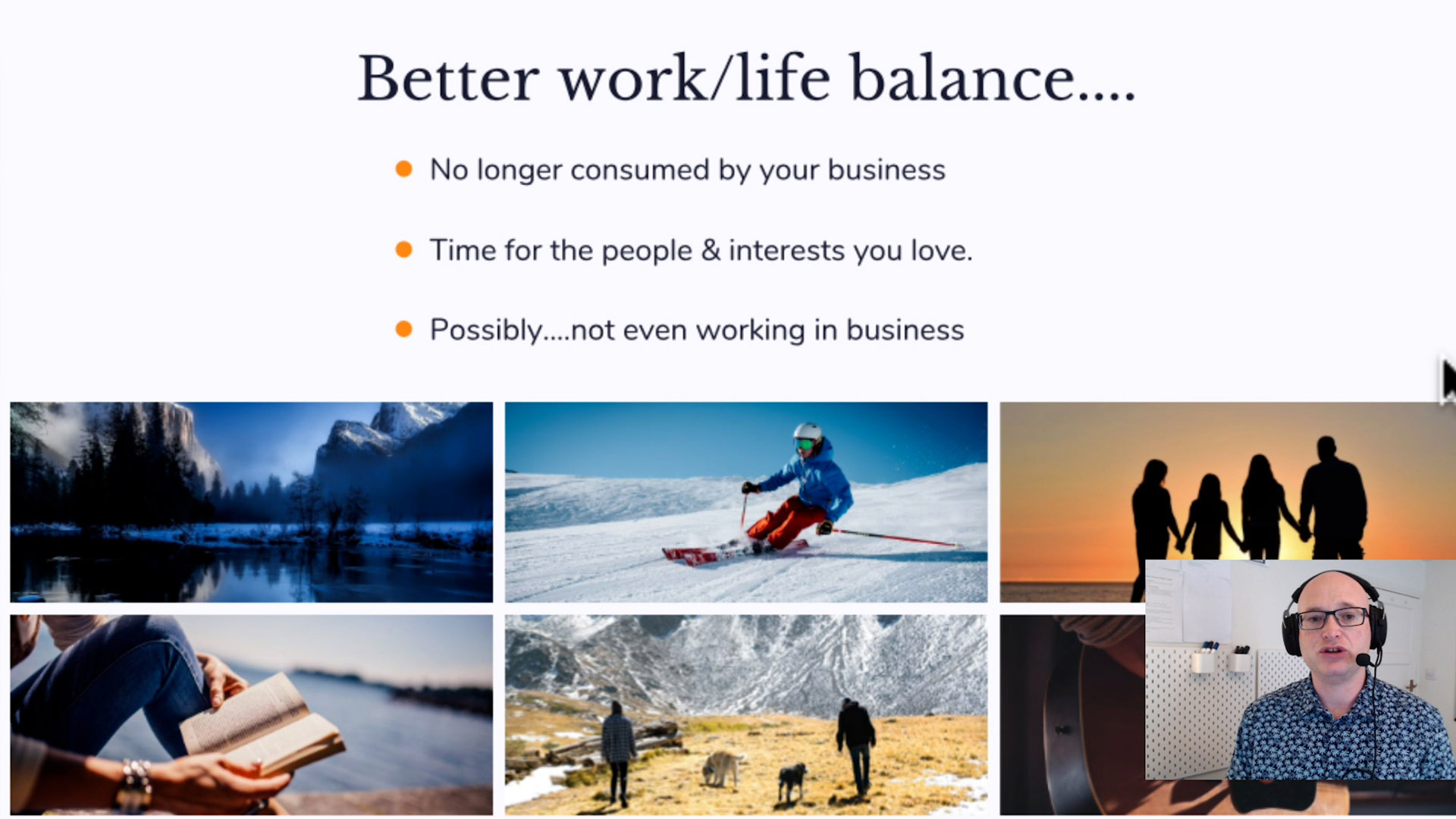DISCLAIMER: In this article we give you our best methods and advice, but ultimately, YOU need to decide what’s right for you, your business, and your employee. Remember – It’s always a good idea to have a good night’s sleep before you make a big decision.
Right, let’s dive in!
How to spot employees who aren’t measuring up
It can be terribly easy to spot employees who aren’t performing. After all, customer complaints and surly attitudes don’t blend into the background. However, occasionally you know something’s wrong, but you just can’t put a finger on it.
Here’s a list of symptoms you can look for:
- They’re constantly late or absent from work.
- The quality of their work is low
- They’re not a team player (lone wolf attitude)
- Their work is sloppy and careless
- They’re uncooperative with other staff
- Their figures have dropped (e.g. sales targets, production targets)
- Poor communication: They talk over others, rude, don’t pay attention, assume they don’t need to listen
- They add friction to many of the tasks you assign them
- They have a negative effect on morale
The list goes on…
However, even with the list above, you might still overlook poor performances from some of your team members.
Why?
Well, many leaders are short on time… they run from priority to priority, tackling challenges when they land on their desk. While this reactive strategy certainly helps leaders overcome immediate crises, it doesn’t reveal other performance issues, which are hidden below the surface.
For example, one employee who takes too much time off can disrupt the entire workflow of your team- and cause discord amongst the employees who have to pick up the slack.
What can you do?
Be proactive: Use scheduled performance reviews to discover performance molehills before they turn into mountains!
Scheduled Performance Reviews
I’ve noticed that many executives underestimate the power of regular performance reviews. Why? Well, many leaders are told they have to run performance reviews, without understanding why.
There are many benefits to performance reviews, but here’s one of the biggest: When you show team members you care about them and their performance, they’ll reciprocate by caring more about their performance and what you want them to achieve.
Five tips for running successful performance reviews:
1) Hold regular schedule strategic reviews of both team and individual performance. (quarterly, annualy, etc).
2) Be consistent and hold them no matter how busy you are – there’s never a good time, and always a reason to skip them!
3) Tread carefully and keep conversations confidential.
4) Look for the good. Try to keep a balanced and healthy view of the team members’ performance. Don’t just focus on mistake and errors.
5) Dedicate uninterrupted time to meet with individuals and find out what’s going on below the surface. Is everything as good as it looks? Are there are challenges that are festering? Are there opportunities to unlock performance that you are missing? Do team members need support with challenges? (e.g. Flexi-time, delegate more of their tasks, more resources)
6) Really Listen to your team members and get a better grasp on hidden problems and underperforming team members. You might be surprised by what you learn!
Discover the reasons for poor performance
If you want to improve your employees’ performance it’s important to go deep and understand the root cause, that’s causing their underwhelming performance. If you don’t, you risk treating the symptom, not the cause… and you’ll find that similar situations will flare up again.
There are many reasons employees don’t meet expectations. Some of these are within the employees’ direct control, and some are not.
For example:
- Not having the skill set required for their role or work environment.
- Dealing with personal issues outside of work that affect their productivity and mental state during working hours (e.g., illness, divorce, family death, stress)
- There could also be something about them personally which is causing them to underperform, e.g., lack of drive, too young/old for position, lack self-confidence, etc…
- Mismatch between the job they were hired for and what the employer really needs them to do.
- Struggling with a challenging work environment and need support
- Expectations have not been clearly communicated to the employee
- Behavior of colleagues and leaders
- Lack of resources
As you can see, there are many reasons that an employee’s performance might be lacking. It’s important that you take time and identify the BIG reasons that’s causing the employee to deviate from your expectations. Sometimes it’s hard to know what’s going on without directly asking your employee.
If you talk to your employee, it’s important that you do this in a friendly and open manner.
How to approach conversations with underperforming employees:
- Before you talk – visualise having a constructive and friendly conversation (it’s more likely to happen if you do)
- Meet on equal terms in a safe space. Do meet 1:1. Don’t gang up on them – by inviting additional leaders to attend (unless it’s absolutely necessary). Do use open non-threatening body language. Don’t make them sit on a tiny stall while you tower over them. Do meet in a private space where the person feels they can talk openly. Don’t meet in a communal area.
- Focus on learning what’s causing them to underperform, not on criticising them as an individual
- Be open. External factors might be part of the reason for the poor performance (e.g., the behaviour of other colleagues or leaders, lack of resources)
- Start with small talk and easier questions. Warm up to the harder stuff.
- Be compassionate, caring and understanding
- Ensure you really listen to the employee. This conversation might be the only time that someone really listens to them. Don’t be in a rush to give your opinion. Don’t assume you know what they will tell you. Give them room to share what’s really going on. Once you’ve really listened to them, they will be more open to listening to you and understanding your perspective.
- Ask ‘What’ not ‘Why’ questions. ‘Why’ questions often sounds like accusations.
- Confirm whether the person is coachable (Are they willing to listen? Are they willing to change and improve?) This will inform your next steps.
- GO DEEP. See point below.
- Pause if you need to. If things become fraught or either of you need space to think, take a break and resume the session later.
- Try to end on a positive note, with some positive next steps in place – The next step could be putting an action plan in place or it could be agreeing to meet again… there’s no need to make big decisions after a first meeting, it’s okay to take time and think things over.
GO DEEP INSIGHT: To uncover the BIG reason, you often need to dig down three levels, that means not just walking away with the first answer give you, but taking the time to go deeper, and understand the real thing that’s driving their behaviour.
Here’s an example of GOING DEEP:
Leader
“What’s preventing you achieving your bookkeeping deadlines”
Employee
“I’m working hard. But it seems to take forever to gather the receipts”
Leader
“What is the hardest part of getting the receipts?”
Employee
“Getting Danny and Jenny to hand them over promptly. I seem to spend hours chasing them”
Leader
“What’s your relationship like with Danny and Jenny?”
Employee
“They don’t really respect me, I think it’s because I’m new and young”
As you can see from this crude example, taking the time to reveal the truth uncovers other challenges within the business, challenges that any serious leader should want to tackle.
To ensure you’ve gone as deep as possible, end the session by asking open questions like, “Is there anything else?”
Ensure you pay attention to what your team member says. The precious insights that are revealed in your conversation can help you level up both the individual and team performance.
Remember, the sooner you identify the reason for sub-par performance – the sooner you can minimise the costs and pains associated with misfiring team members.
But before we do that, it’s important to touch on some mistakes that stop employees from becoming top performers.
Common mistakes that hold people back
Being a leader is hard. Many of us have overcome great adversity to achieve what we have so far, so nobody can blame you, if you’ve made some of the following mistakes.
After all, formal education never prepared us for what it takes to lead a modern workforce – especially when the world is changing so fast!
It’s important that leaders are aware of these common mistakes, so they’re able to rectify them, and stop their good apples from going bad.
Common mistakes that stop employees becoming top performers:
- Not creating a positive workplace culture – if the barrel is rotten, it’s hard to be a good apple
- Leader telling employee to “perform better”, not coaching them to perform better
- Mismatch between the job a team member was sold in the interview, and the reality of their day-to-day role.
- Not building up team members’ confidence
- Not giving team members productivity skills
- Not providing formal induction or training
- Not providing ongoing training
- Not consistently checking on work of employee – so they think nobody cares about their work.
- Leaders attitude to employee – if a leader thinks the worst of an employee, it can create a self-fulfilling prophecy, you have to see the good, to get the good
(Aside: If you need training for your team, you can learn more about our team training system here.)
None of these mistakes are irreversible, but it’s important to get a grip on them, so that you create the best possible environment for your team to flourish in.
For example, if your leaders tend to oversell a job in the interview and frame it as the ‘dream job’, you might add a dose of reality to future job interviews.
It’s important to discover if any of these issues are contributing to your team members’ sub-par performance. If they are, make efforts to rectify them. Because you can’t expect employees to improve, if you’re not willing to do the same — True leaders lead by example!
(Aside: This is a blog post, not a book, so we won’t explore all these listed mistakes now. However, we will return to them in future blog posts. So grab some of our free stuff and join our mailing list.)
Next, let’s turn our attention to the damage that second-best performances can cause…
Hidden costs of failing employees
An underperforming team member can hurt you and your business in several ways:
- Decreased employee engagement – When an employee doesn’t feel like they are contributing or that what they do matters, it’s hard to have any motivation. This is because most of us thrive on feeling useful/needed in our work environment. We all want to be around people who show up with energy and enthusiasm each day.
- Schedules slip – when people aren’t at their best, it takes longer to complete tasks and projects
- Project budgets are broken
- Negatively affecting morale, which leads to higher staff turnover and wastage
- Increased workload and stress for leaders – When team members aren’t working as they should, it’s often the leader who has to pick up the slack.
- Higher rates of absenteeism – If an employee feels undervalued or unsupported then they’re more likely to take time off.
- Higher employee costs – when team members don’t meet expectations, the business will have higher expenses
- Increased employee turnover- if your team members don’t meet expectations, then these employees will likely start looking elsewhere for opportunities where their talents are appreciated. They won’t stick around in roles where they’re not valued as much as you need them too
- Loss of institutional knowledge – when an employee leaves it’s like your company is losing its memory. This means that only those who were there for the entire journey will be able to take on certain tasks or responsibilities with confidence. It also means that any new employees coming in have no one they know around them to help guide them through their first few weeks/months with the business.
- More work and stress for the leader. Less time enjoying life for the leader.
These costs can be very expensive, however if you take action you can regain control of the situation and improve the situation.
(Aside: If your business is suffering with these costs, e.g. Increased employee turnover, it might be a sign that your organisation has cultural or organisational challenges, that can’t be solved by improving one team member.)
Now that you know true cost of underperforming team members, it’s time to formulate a plan.
Agree an action plan with coachable people
When first speaking with your underperforming employee, learn if they’re willing to change and improve. If they are, they are coachable.
If your employee is coachable… keep reading.
If they’re not coachable… jump to Take action when people don’t or won’t improve
Great news! If your team member is coachable, there’s a good chance you can work together and get them back up to speed.
Next step: create a solid improvement plan with the team member.
A good plan has the following ingredients:
- What you, the team member, the business are going to do differently. If you’re willing to change, your team member will be too.
- Positive, realistic goals (you can help team members set these)
- Resources – you need to agree on resources that you’ll make available to the employee (e.g. mentoring from a colleague) that helps them change
- A realistic time scale – that gives employees enough time to make the change
- Provide a written summary – Summarise what you’ve agreed and share with the employee so everyone’s crystal clear about what you need to do.
Help them think differently
For this plan to work, you may also need to coach the employee through some mindset challenges. For example, they might wrongly believe that they should be as successful as people who’ve been working in their role for longer. Helping team members get a healthy perspective on situations can make the world of difference to their positivity and motivation.
When things fall outside your remit refer people to the experts
While it’s a good idea to help team members overcome basic mindset issues. Trained professionals should handle serious issues around depression and mental health. There’s no shame in suggesting that team members speak with healthcare professionals who’re in a better place to help them. Just remember to keep these discussions and recommendations confidential.
Monitor progress
Once you’ve agreed on an improvement plan, you’ll need to monitor progress. To do this, set up a time for the employee to chat with you and review how they’re getting on with each of their goals.
Check in regularly but not too often! It’s important that employees don’t feel like they are being constantly monitored or judged. Ask them how things have been going so far, if there is anything stopping them from completing tasks successfully and what support they might need.
Some helpful questions include:
– “What has stopped you from meeting your goal?”
– “How can I help you meet your goal more effectively?”
– “What have you done to try to meet this goal?”
– “Has anyone else said something about these areas? What did they say?” (it’s important to learn what other people on the team are thinking and are experiencing, but you want to do it without going behind the person’s back).
Reward positive change
Once a team member has made tangible progress, you need to reward the employee for their hard work. This will help them see they are on the right track, which makes it more likely that they’ll continue with those positive habits and behaviours.
Acknowledge the progress and success of others by publicly praising good behaviour when it’s appropriate…
- Do publicly praise them for hitting sales targets
- Don’t publicly praise them for turning up at work on time – this will only make them feel silly and highlight poor behaviour in the past
After a while, people may stop doing what got them back-on-track and slip back into old behaviours, so it’s important to keep up regular feedback sessions about performance. But don’t forget to be encouraging – rewarding a team members’ efforts will go a long way towards making future changes stick.
Take action when people don’t or won’t improve
If you’re reading this section, one of the following is probably true….
A) You’ve decided that the employee is uncoachable and won’t improve
B) You’ve given the employee ample opportunities, time, and support to change their ways — but they’re not making progress.
If that’s the case, it’s time to take action. Underperforming employees can’t simply be left in place within an organisation, or you’ll risk damaging employee morale, team performance, and the company’s success.
In this section, we’ll go over what to do when you’ve tried everything to get any employee back on track.
Step 1 – A Frank Conversation
The first step is having a state-of-play conversation with the team member. In this conversation, you should be frank about where things stand and how things haven’t improved as you would have liked. You should explore next steps with the team member. One idea you must introduce is the employee leaving your company and finding a job elsewhere — this might be the best solution for everyone. If you handle this conversation well (calm, clear, confidential) you will find that many employees will take the initiative and leave their posts without further input from you.
However, if the employee elects to remain in your business… It’s time to move on to step 2.
Step 2 – Consequence Mode
Things are getting serious now, so the conversation tone needs to change from one of coaching to one of consequences. You must explain that disciplinary action will be taken when they cannot meet reasonable performance expectations in the future. You should keep a written record of your conversation and stay true to your word – when they cannot meet expectations, start disciplinary procedures action against them. The start of these procedures will either be a massive wake-up-call to the person, or they’ll keep failing to meet expectations and the disciplinary procedures will eventually result in their contract being ended.
For disciplinary procedures in the UK,
See the UK government guide to disciplinary procedures here.
And the ACAS advice here.
For jurisdictions outside the UK please consult your local laws and lawyers
In conclusion… Keep your business strong
Today, leadership is the responsibility of all employees and not just those at the top. As a leader, it’s your job to ensure that performance stays high so you can keep the business strong for yourselves and others. We want to help! Our training system takes an innovative approach to team performance and helps team members break through performance barriers. Book A Call with us today and see how our training system will inspire you as well as everyone else around you too!









